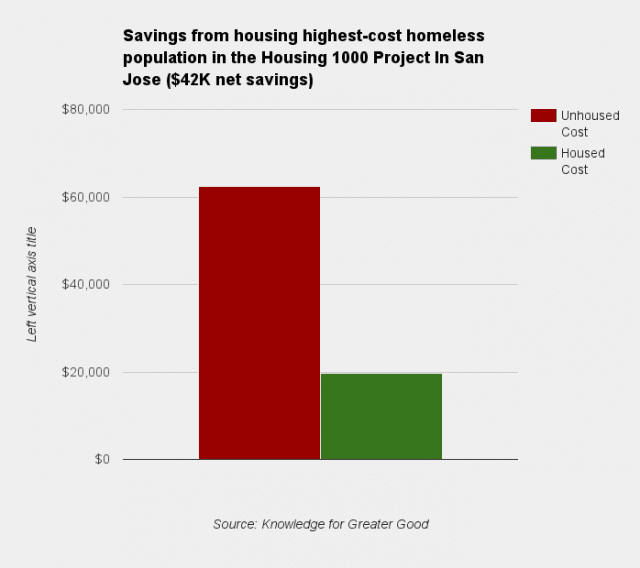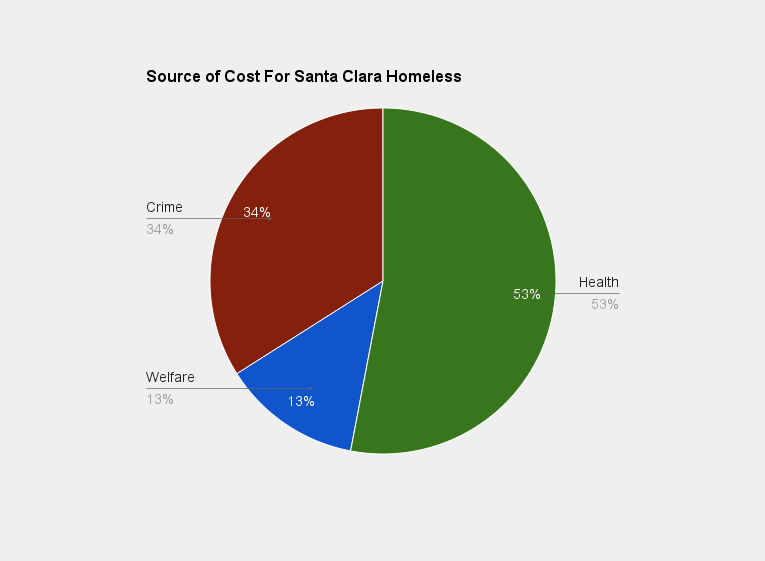A new economic analysis finds that Santa Clara Country could completely end its homeless problem at zero net cost by providing public housing for every single person living on the street.
Study: Silicon Valley Could End Homelessness For Free

While there are more chronically homeless people squatting in the wealthy districts of Silicon Valley than the streets of Salt Lake, that also makes the cost savings greater. Crime alone eats up one-third of the $520 million spent on services for the homeless from 2007–2012.

In Santa Clara County, the report finds, there are 2,800 high-problem homeless residents that cost the city $83,000 per year. The average homeless resident only costs the city $13,661, so helping the 2,800 residents with the worst problems could end up paying for a long-term universal housing program.
Housing advocates have attempted to prove their model with smaller scale projects around the country, including around 720 people in Santa Clara County. The report notes that those participating in the Housing 1000 project saved the city $42,000 per person. 100% of those housed stayed out of jail and received 72% fewer probation sentences.
To be sure, Housing 1000 is a self-selected population. The study could not track those who elected to exit the program, who are most likely more prone to crime and mental health issues. Any economic analysis is an extrapolation that the program could work at scale and capture even more of the most resistant and high-cost homeless.
But, for those who stayed in the program, housing as been a lifeline. “Without this place, I would be dead. I finally have somewhere to call home.” said formerly homeless 47-year-old Randolph Sanchez to San Jose Mercury News in 2014.
The study suggests that wealthy tech entrepreneurs could help end poverty in their local community. However, the upfront costs of universal housing could be politically prohibitive. So, it’s anyone’s guess if any Bay Area cities will try to adopt the report’s recommendations.
*The Ferenstein Wire is a syndicated news service. For inquires, email the editor at greg at greg ferenstein dot com
COMMENTS
Please let us know if you're having issues with commenting.